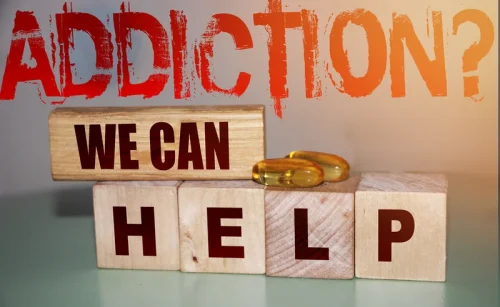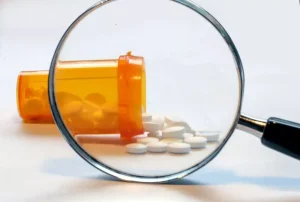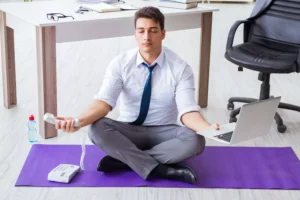However, people who drink alcohol before bed often experience disruptions later in their sleep cycle. It’s common for someone who’s alcohol-dependent to experience long-term sleep problems since insomnia and other sleep disorders are typical symptoms of alcoholism. In summary, alcohol misuse (heavy alcohol use and AUD) appears to be linked in a bi-directional fashion to sleep-related problems such as insomnia and circadian rhythm abnormalities. Furthermore, an evening chronotype and greater shifts in weekday-weekend sleep-wake schedules have been linked to alterations in the brain sensitivity to reward and possibly a change towards greater substance use behavior. The recommended treatment for insomnia disorder in the community, as well as those with AUD, is CBT-I. Alcohol is one of the most commonly used psychoactive substances in the community.
How to Stop Alcohol Insomnia in Casual and Problem Drinkers: Why It Happens and What to Do
Men consumed more alcohol than women with 15.7% consuming 21 or more units per week compared to only 2.4% of women (Table 1). 30.5% men and 12.8% women scored more than 5 on the AUDIT score, indicating hazardous drinking. Over this past decade, knowledge in the field of sleep-related disorders has grown considerably with the evolution of sleep medicine and behavioral sleep medicine as independent sub-specialties, and improved comprehension of sleep disorders and their treatments. Another ramification of this growing body of knowledge is the revision in the diagnostic criteria for sleep disorders. These updated criteria are seen in the third edition of the International Classification of Sleep Disorders (ICSD-3) (AASM, 2014) and the fifth edition of the Diagnostic and Statistical Manual for Psychiatric disorders (DSM-5) (APA, 2013).
- Maybe you enjoy a glass of beer or wine after dinner, or your weekends include drinking with friends at bars or social events.
- However, the relationship between the two disorders is complicated and closely linked.
- Sleep and circadian rhythm disruption from alcohol also contribute to next-day tiredness, fatigue, irritability, and difficulty concentrating.
- Sometimes, people connect their insomnia with alcohol use and vice versa.
How Do You Stop Alcohol from Disrupting Your Sleep?

In this manuscript we will adhere to the ICSD-3 classification for sleep disorders. In addition to the homeostatic drive, the normal sleep-wake cycle is also linked to an underlying circadian rhythm. The suprachiasmatic nucleus within the hypothalamus in the alcohol insomnia brain is the master clock that synchronizes a host of internal rhythms with the sleep-wake cycle being one of them. Light is the primary stimulus involved in synchronizing an organism’s internal rhythm in the circadian clock with the external environment.
What alcohol actually does to your sleep cycles
Effects of an acute pre-bedtime dose of alcohol on sleep have been extensivelystudied although methodology has varied greatly between studies in terms of dose and timingof alcohol administration, age and gender of subjects, and sample size. In the second half of thenight, sleep is disrupted, with increased wakefulness and/or stage 1 sleep. It is estimated thatalcohol is used by more than one in ten individuals as a hypnotic agent to self-medicatesleep problems (Arnedt, 2007). Insomnia and other sleep disturbances are exceedingly common during early recovery from alcohol dependence and likely contribute to relapse in this population. Although sleep improves with continued abstinence, permanent alterations to the sleep centers of the brain from chronic alcohol exposure may produce persistent abnormalities that, in many cases, require independent treatment.

A 2019 study found eight weeks of CBT-I reduced insomnia in veterans recovering from alcohol dependence. Your first step is to reach out to a healthcare provider to get help giving up alcohol. Research shows giving up or cutting down on alcohol can improve alcohol insomnia symptoms. Those with an alcohol abuse problem can stop alcohol insomnia by speaking to a doctor about quitting alcohol, trying cognitive behavioral therapy https://ecosoberhouse.com/ for insomnia, improving sleep hygiene, and considering sleep aids, if appropriate. “If you experience insomnia, mood imbalances and other brain symptoms, it may be best to cut back alcohol intake overall,” Dr. Scheller adds. “Many people find that while it initially seems difficult to break the habit of using alcohol to induce sleep, they soon adjust and experience better sleep and energy overall,” she continues.
How does alcohol withdrawal affect insomnia?

Ultimately, alcohol can decrease the amount and quality of sleep you get. Alcohol can cause insomnia — or sleep problems that look like insomnia — in a few different ways. It can fragment your sleep, so you wake up more often in the night, suppress the sleep hormone melatonin, and alter your sleep stages. Alcohol withdrawal insomnia may clear up when withdrawal symptoms subside. But research shows sleep fragmentation from alcohol use can last one to three years after you quit drinking. Beyond this, if you’re experiencing alcohol-induced sleep problems (or any sleep problems for that matter) you might rely on caffeine to get through the day, but this can make it harder to sleep come bedtime.

Sleep better. Sell more.
How Does Alcohol Withdrawal Affect Sleep?
- A glass of wine with dinner seems harmless enough until you’re tossing and turning in bed later that night unable to sleep.
- Beyond this, if you’re experiencing alcohol-induced sleep problems (or any sleep problems for that matter) you might rely on caffeine to get through the day, but this can make it harder to sleep come bedtime.
- This can lead to excessive daytime sleepiness and other problems the next day.
- Alcohol interferes with the brain’s ability to receive chemical messages involved in breathing, which decreases the body’s respiratory drive and increases the likelihood of pauses in breathing.


 CHUỖI GIAO NƯỚC TẬN NƠI
CHUỖI GIAO NƯỚC TẬN NƠI